5.11.12
Nathaniel Dorsky & Jerome Hiler
11:29 AM
---
---
GENERAL INTRODUCTION:
"Dorsky arrived on the New York scene with a trilogy of short films—Ingreen (1964), A Fall Trip Home (1964), and Summerwind (1965)—evocations of his childhood and adolescence in a New Jersey small town (Millburn). Most obviously in Ingreen, but to some extent in A Fall Trip Home, we see Dorsky coming to grips with the combined excitement and terror of gay desire, in a cinematic form that recalls the psychodramas of the 1940s and 1950s. Unlike the defiant early landmarks of what we now call Queer cinema—Kenneth Anger’s Fireworks (1947), Jean Genet’s Un chant d’amour (1952), Jack Smith’s Flaming Creatures (1963)—Dorsky’s early films reflect what must have been the more usual adolescent experience of confronting gay desire during the 1950s and 1960s: Dorsky seems to make his way through small-town adolescence with a guilty sense that he’s diªerent from his family and friends, and full of puzzlement about what to do about this.
By the time he made Summerwind, Dorsky had become fascinated with a new form of cinematic perception: an intense looking at the particulars of the physical world that, in the years that followed, would mature into a series of remarkable visual experiences: Hours for Jerome, Parts 1 and 2 (1982), Pneuma (1983), Alaya (1987), Triste (1996), Variations (1998), Arbor Vitae (2000), Love’s Refrain (2001), The Visitation (2002), and Threnody (2004). The visual sensibility of Dorsky’s mature films, all of which are silent (Dorsky asks that they be projected at eighteen frames per second, what he calls “sacred speed”), tends toward the spiritual, the meditative. Implicitly Dorsky asks that viewers consider the successive shots in his films not as parts of a strategy for delivering viewers to a narrative or ideological conclusion, but as an opportunity for becoming more fully aware of the particulars of each image and its interrelationships with the images that precede and follow it. Dorsky’s films are a form of visual/conceptual training in apprehending the world, and its representation in cinema, in a deeper, more reverent sense."
(Scott MacDonald in A Critical Cinema 5)
-
"Jerome Hiler might be called the phantom of the cinema. I have known
Jerry since about 1965, when I borrowed his Bolex to shoot a film of my
own at St. Theresa’s Church across the street from his apartment, and
even then, living on the lower East Side in a small flat, he had already
amassed many hours of gorgeous 16mm footage, all neatly edited into
related segments on large stacks of 400′ reels; I sat there, entranced,
for hours, watching his work, all of it silent, which knocked me out
then, and does still...
Lately, Jerome has been into stained glass rather than film, although he recently completed a feature film, Music Makes a City,
and he also teaches and lectures from time to time, but of course, I
wish he would hold a marathon screening of his work, just as it is —
pull out any ten or twelve 400′ reels, and run them for an unforgettable
evening." (Wheeler Winston Dixon)
---
FILMOGRAPHY:
[DORSKY]
[DORSKY]
Ingreen (1964)
A Fall Trip Home (1964)
Summerwind (1965)
Hours For Jerome Part 1&2 (1980-82)
Pneuma (1977-83)
Ariel (1983)
Alaya (1976-87)
17 Reasons Why (1985-87)
Triste (1974-96)
Variations (1992-98)
Arbor Vitae (1999-00
Love's Refrain (2000-01)
The Visitation (2002)
Threnody (2004)
Song and Solitude (2005-06)
Winter (2007)
Sarabande (2008)
Compline (2009)
Pastourelle (2010)
Aubade (2010)
The Return (2011)
August and After (2012)
April (2012)
Song (2013)
Spring (2013)
Summer (2013)
December (2014)
February (2014)
Avraham (2014)
-
[HILER]
Fool’s Spring (Two Personal Gifts) [co-made with Nathaniel Dorsky] (1966)
Library [co-made with Nathaniel Dorsky] (1970)
Gladly Given (1997)
Target Rock (2000)
Music Makes a City (2010)
Words of Mercury (2011)
In the Stone House (1967-70/2012)
New Shores (1979-90/2012)
Misplacement (2013)
---
Summerwind (1965)
Hours For Jerome Part 1&2 (1980-82)
Pneuma (1977-83)
Ariel (1983)
Alaya (1976-87)
17 Reasons Why (1985-87)
Triste (1974-96)
Variations (1992-98)
Arbor Vitae (1999-00
Love's Refrain (2000-01)
The Visitation (2002)
Threnody (2004)
Song and Solitude (2005-06)
Winter (2007)
Sarabande (2008)
Compline (2009)
Pastourelle (2010)
Aubade (2010)
The Return (2011)
August and After (2012)
April (2012)
Song (2013)
Spring (2013)
Summer (2013)
December (2014)
February (2014)
Avraham (2014)
-
[HILER]
Fool’s Spring (Two Personal Gifts) [co-made with Nathaniel Dorsky] (1966)
Library [co-made with Nathaniel Dorsky] (1970)
Gladly Given (1997)
Target Rock (2000)
Music Makes a City (2010)
Words of Mercury (2011)
In the Stone House (1967-70/2012)
New Shores (1979-90/2012)
Misplacement (2013)
---
WRITINGS ON DORSKY/HILER:
Reconstructing Nathaniel Dorsky
Review of 'Song and Spring'
Review of 'Music Makes a City'
Review of 'Music Makes a City'
Review of 'Music Makes a City'
Rites of Passage: San Francisco Bay Guardian
Review of 'Song and Spring'
Review of 'Music Makes a City'
Review of 'Music Makes a City'
Review of 'Music Makes a City'
Rites of Passage: San Francisco Bay Guardian
Scope review of 'Devotional Cinema'
'Song' and 'Spring' Recall 'Diamonds' of a Bygone Era
The Startingly Beautiful Films of Nathaniel Dorsky
Tone Poems by P. Adams Sitney
'Words of Mercury' Review
---
[NOTE: CLICK IMAGES TO READ DOCUMENTS]
---
from The Exploding Eye by Wheeler Winston Dixon
---
from Independent 27.5 (2004)
'Song' and 'Spring' Recall 'Diamonds' of a Bygone Era
The Startingly Beautiful Films of Nathaniel Dorsky
Tone Poems by P. Adams Sitney
'Words of Mercury' Review
---
[NOTE: CLICK IMAGES TO READ DOCUMENTS]
---
from The Exploding Eye by Wheeler Winston Dixon
from Independent 27.5 (2004)
---
from The Garden in the Machine by Scott MacDonald
---
excerpts from Radical Light...
---
from Millennium Film Journal No. 35/36
---
from Millennium Film Journal No. 38
---
from Cinema Scope 22
---
Margin Notes by Chuck Kleinhans
---
from Visionary Film by P. Adams Sitney
---
---
WRITINGS BY DORSKY:
Personal Photos:
---
from Cinematograph No. 1 (1985)
---
from Stan Brakhage: Correspondences
---
excerpt from Devotional Cinema
---
---
DORSKY ON FILM:
Collection at Berkeley University (search Dorsky's name)
INTERVIEWS WITH DORSKY/HILER:
Video Data Bank interview (inquire within)
---
from A Critical Cinema 5 by Scott MacDonald
---
from Cinematograph No. 1 (1985)
---
From Release Print 19 No. 10
---
From Cinema Scope 52
---
---
"I decided that what was most interesting to me about avant-garde film -- or at least the avant-garde films that I found most interesting -- was a search for a language which was purely a filmic language. Not something limited to film, but a purely filmic language that also had human value to it. There are various filmmakers who’ve explored human cinema language, or cinema human language, which is something other than using film to replicate a written language form, whether it be the novel or the poem. I was interested in something that was actually intrinsic to the nature of cinema, expressive as cinema, and at the same time expressive of our human needs and human worth.” (Nathaniel Dorsky)
-
---
(my thanks to Nathaniel Dorsky, Chris Gehman, Steve Polta, Chuck Kleinhans, Roger Bebee and Joel Wanek for their assistance)
---
"Definitely. I’m an occasional filmmaker, but with regret—because I love people, and when I meet people who say, 'We’d like to see more of your films'—basically telling me that I could make them happy by showing the films—I feel bad. There is a kind of joy that can come into someone’s life from seeing something beautiful, and the good-natured part of me sometimes wonders, 'Aren’t you being a little stingy?'” (Jerome Hiler)
---
(my thanks to Nathaniel Dorsky, Chris Gehman, Steve Polta, Chuck Kleinhans, Roger Bebee and Joel Wanek for their assistance)
---
Labels:
Jerome Hiler,
Nathaniel Dorsky
Subscribe to:
Post Comments (Atom)
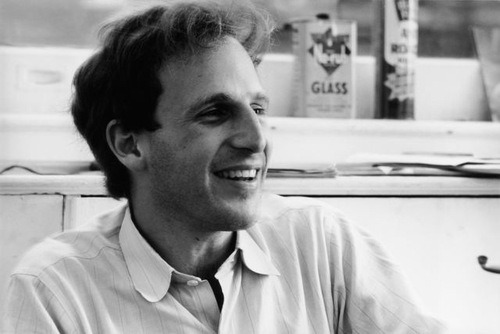
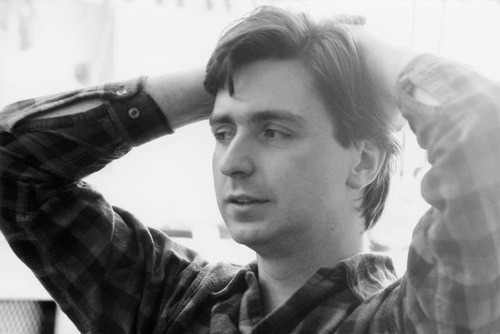
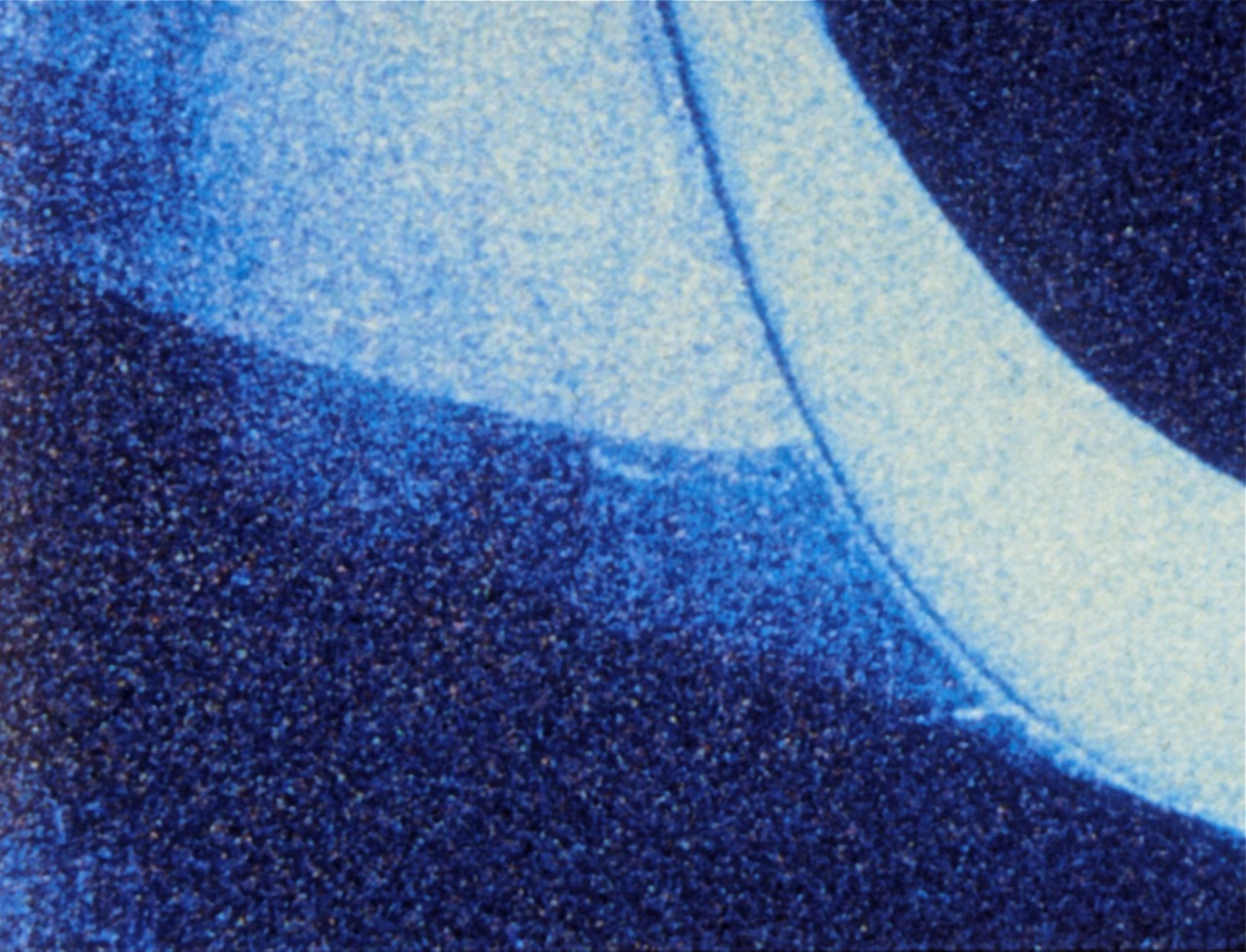
















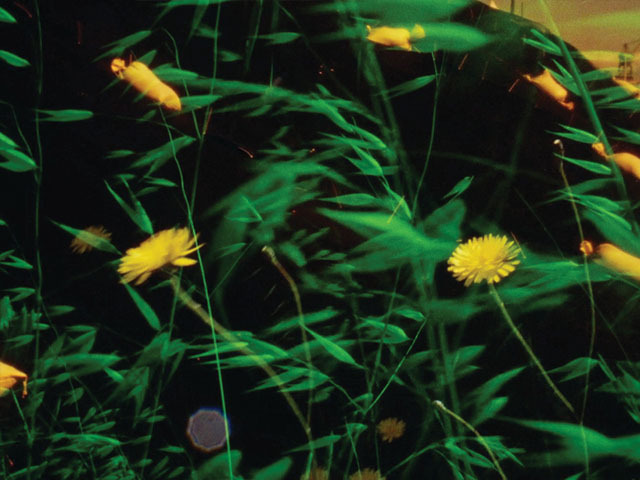
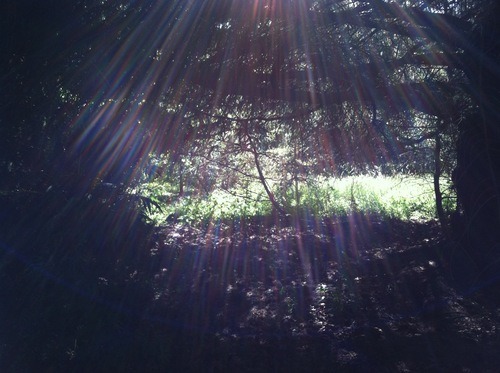







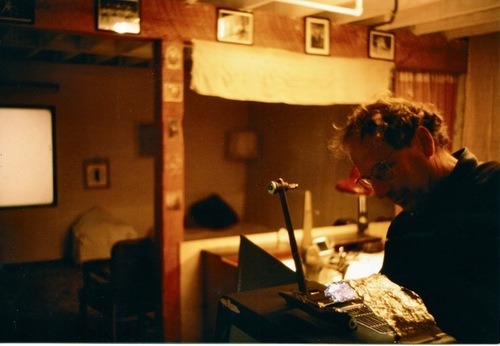

1 comments:
MUSIC FOR TRAILERS
IMPACT Trailer Music Library is a new concept in boutique music libraries.Made by experienced film industry composers and sound designers, IMPACT delivers high-quality soundtracks specially designed for syncing to trailers and produced with the filmmaker's needs in mind.
Post a Comment